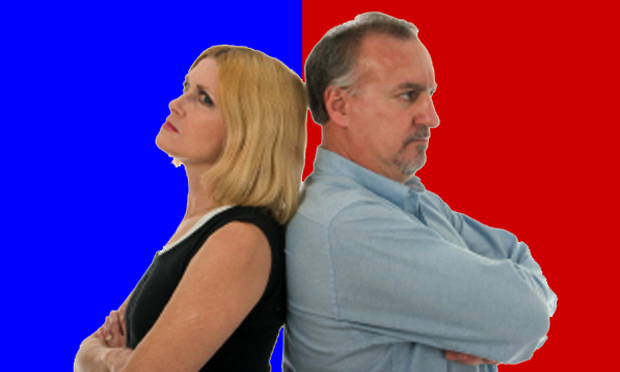It’s no secret that American politics have become more polarized over the last several decades, particularly when it comes to hot-button issues such as taxation, climate change, and the national debt.
A 2012 report published by the Pew Research Center for the People & the Press, “Partisan Polarization Surges in Bush, Obama Years,” confirms these changes in the political values of American voters over time. The annual report surveyed more than 3,000 adults about social and economic issues, including politics, business, immigration and religion. The authors then compiled a comprehensive synthesis of survey findings from the last 25 years.
Key findings include:
- While differences of opinion along the lines of age, gender, ethnicity and class have remained relatively stable over time, the partisan divide has grown dramatically in recent years: “The Obama presidency has witnessed the most extreme partisan reaction to government in the past 25 years.”
- More voters were unaffiliated with a major party than at any other point in the last 75 years: as of 2012: 38% of respondents were independents, 32% were Democrats and 24% were Republicans. Of the independents, 43% considered themselves moderate, 30% leaned conservative and 22% leaned liberal.
- In 1987, 62% of Republicans thought government should “take care of people who can’t take care of themselves”; in 2012, only 40% of Republicans thought it should.
- Views on the environment are as divided as those on the social safety net; the gap is due to a significant decline in Republican support for governmental protections. In 1992, 86% of Republicans agreed that “there needs to be stricter laws and regulations to protect the environment.” In 2012, just 47% of Republicans agreed.
- Democrats’ views on religion and family values have changed significantly over the last 25 years. In 1987, 86% of Democrats said they had “old-fashioned values” about family and marriage; by 2012, only 60% said so. Republican support for “old-fashioned” values has remained relatively steady, from 92% in 1987 to 88% in 2012.
- The Republican party has gotten older, and more Republicans identify as “conservative.” The Democratic Party has gotten more nonwhite, and more Democrats identify as “liberal.”
The researchers note that the two major parties have rarely moved in tandem. Where polarization has increased, generally it is because one party shifted while the other stayed relatively constant. “As Americans head to the polls this November, their values and basic beliefs are more polarized along partisan lines than at any point in the past 25 years. Unlike in 1987, when this series of surveys began, the values gap between Republicans and Democrats is now greater than gender, age, race or class divides.”
Tags: elections, presidency, election issue


Expert Commentary